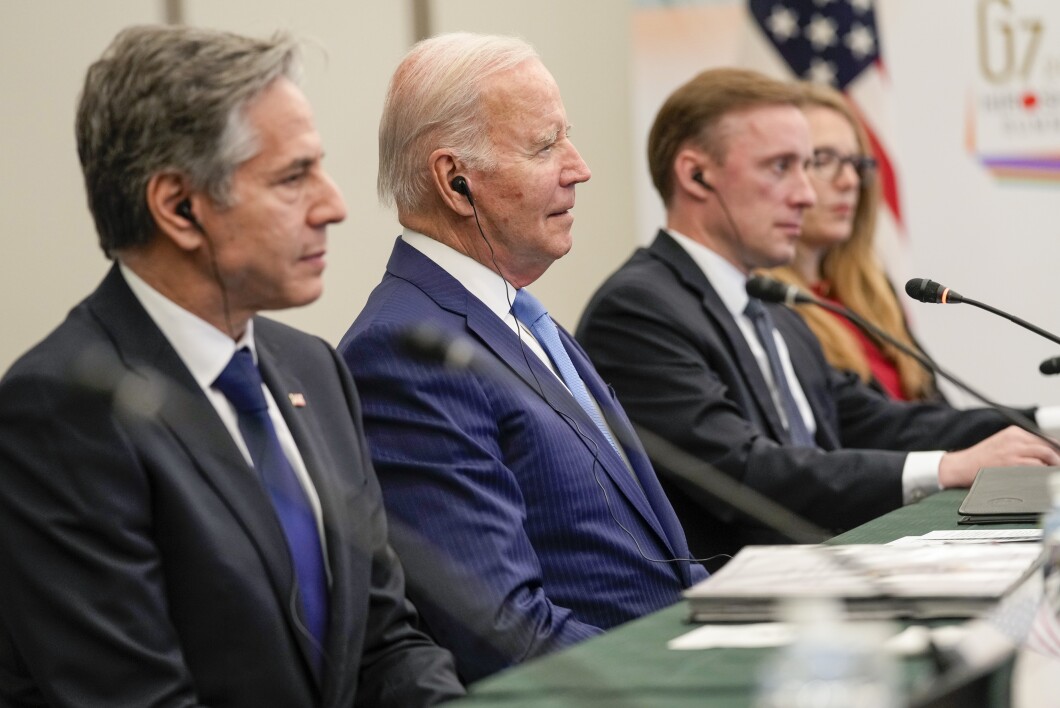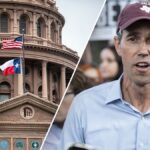
President Joe Biden will disembark Air Force One in Japan to meet with leaders of some of the world’s most advanced economies as the United States remains under threat of a default.
But Biden’s decision to skip side trips to Australia and Papua New Guinea to take part in the debt ceiling negotiations with House Speaker Kevin McCarthy (R-CA) is now also being criticized for handing a political win for China in the Indo-Pacific.
BIDEN CAMPAIGN TO SPOTLIGHT GREEN POLICIES IN APPEAL TO YOUNGER VOTERS
Biden will arrive in Hiroshima on Thursday as House Democrats pursue a discharge petition, a parliamentary procedure used to circumvent regular order in the chamber, to raise the debt ceiling, while Senate Democrats implore the president to rely on the 14th Amendment to increase the country’s borrowing authority. That is despite Biden repeating to reporters during impromptu remarks at the White House before his departure that he is “confident” the U.S. will be able to pay its bills after June 1, the Treasury Department‘s “X-date.”
But Biden also encountered questions after that speech about whether postponing stops in Australia and Papua New Guinea, during which he was supposed to meet his Quad counterparts from Australia, India, and Japan in Sydney, only helps China in the region.

“No, no because we’re still meeting; we’re still formidable allies,” he told reporters in the Roosevelt Room after being asked whether this is “almost a win for China.”
Former White House deputy national security adviser Victoria Coates contended, “It’s hard to argue with the fact that China is coming out on top of this particular exchange.”
“Knowing this was coming up and the refusal to engage on the debt ceiling negotiations — I mean, two months ago — is where I find fault,” she told the Washington Examiner. “They designed that timeline to exert pressure on the Republicans in Congress, but what it also did is exert pressure on the president’s schedule.”
Coates particularly underscored the U.S. relationship with India as it makes entreaties to both China and Russia amid the Ukraine war.
“The added foot stomp of the Quad in Sydney would have been both symbolically and substantively very important, but that has to be canceled now he decided to push the debt ceiling issue to the last minute,” she said. “We’re looking at India hosting the G-20, which does include both China and Russia, in September in New Delhi, and that’s going to be the far trickier meeting, so I very much hope that they come out of Japan with something fairly concrete that can be built on.”
But current White House national security adviser Jake Sullivan was adamant Biden’s decision “comes after one of the most effective and impactful strings of American diplomacy in the Indo-Pacific in an incredibly long time.”
“We believe this notion that somehow the [People’s Republic of China] is sitting there happy and comfortable about the situation is a convenient media narrative going into this trip, but it does not reflect reality in any way,” he told reporters on Air Force One.
White House aides have similarly dismissed the idea Biden’s standing will be diminished in Japan amid the debt ceiling negotiations. International democratic leaders respect U.S. leadership, even after former President Bill Clinton also scrapped plans to attend Japan’s G-7 in 1995 because of a federal government shutdown, according to National Security Council spokesman John Kirby.
“They understand that the president also has to focus on making sure that we don’t default and on having these conversations with congressional leaders,” Kirby told reporters Tuesday. “And he’ll be able to do that and have his team do that while we’re at the G-7.”
“We wouldn’t even be having this discussion about the effect of the debt ceiling debate on the trip if Congress would do its job and raise the debt ceiling the way they’ve always done,” he said.
Biden is traveling to Japan to participate in the G-7, which includes Canada, France, Germany, Italy, Japan, the United Kingdom, and the European Union, in addition to Australia, Brazil, Comoros, Cook Islands, India, Indonesia, South Korea, and Vietnam this year.
Kirby previewed G-7 action “to further” constrain Russia and President Vladimir Putin‘s “ability to wage its brutal war,” as well as “a common approach to the challenges posed by the PRC.” There will also be “rallying” around the need “to accelerate the clean energy transition” and Biden’s economic agenda as G-7 “blueprint” to address climate change and create jobs, complementing a separate “affirmative” program to support developing countries, including through the G-7’s Partnership for Global Infrastructure and Investment counterprogram to China’s Belt and Road Initiative and the World Bank.
“There’ll be discussions about the state of play on sanctions and the steps that the G-7 will collectively commit to on enforcement, in particular making sure that we are shutting down evasion networks, closing loopholes in the sanctions,” Sullivan told reporters Wednesday. “The U.S. will have a package of sanctions associated with the G-7 statement that will center on this enforcement issue.”
CLICK HERE TO READ MORE FROM THE WASHINGTON EXAMINER
“We believe that the work we will do together in terms of deployment of capital to ensure clean energy technologies are built out in, not just in all of our countries but globally, and the establishment of diversified, secure, resilient supply chains from critical minerals to batteries and electric vehicles,” he said. “You will see a degree of convergence on this [but] that from our perspective can continue the conversion of the Inflation Reduction Act from a source of friction into a source of cooperation and strength.”
Biden also has sideline meetings with Prime Ministers Fumio Kishida of Japan, Anthony Albanese of Australia, and Narendra Modi of India, the latter of whom he was to sit down with during the Quad summit.





